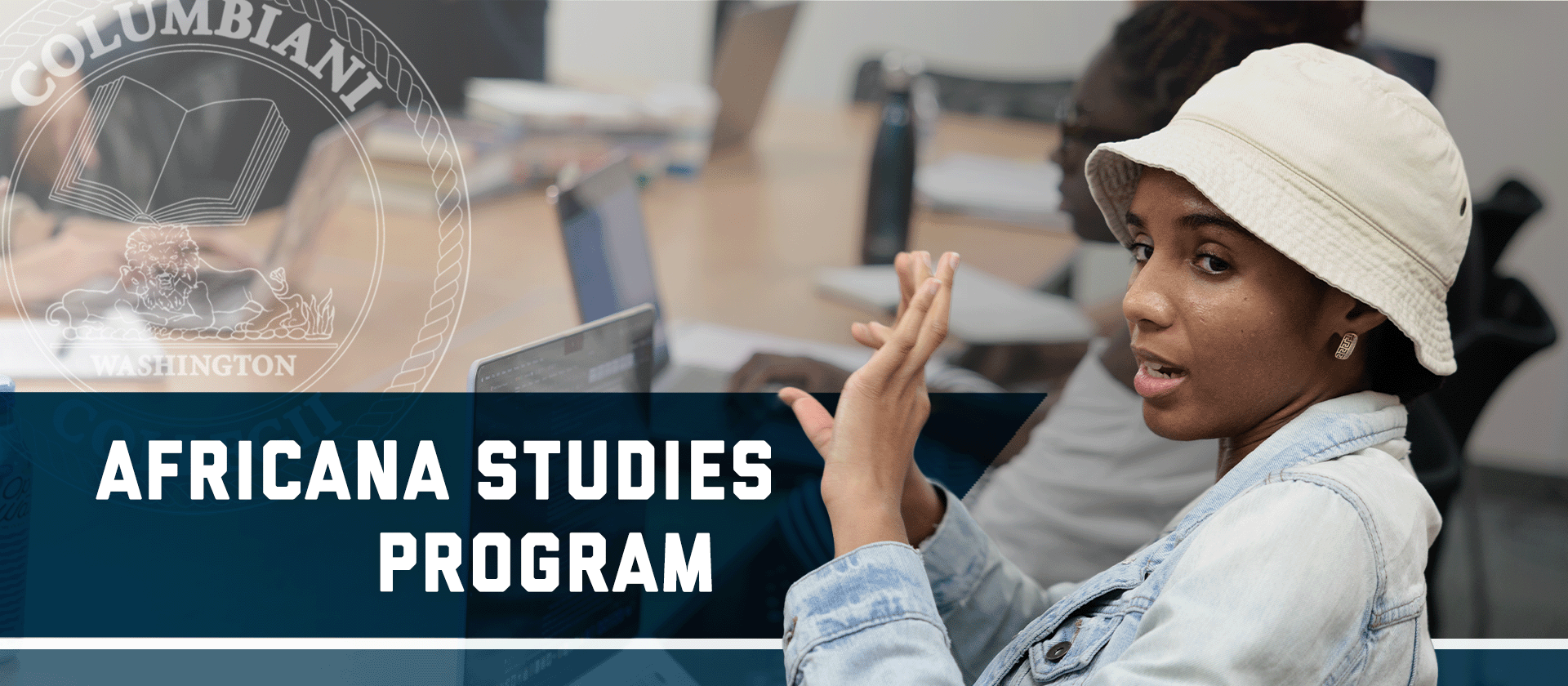Home
Studying Black Worldviews
one revolution at a time
Who We Are

GW’s interdisciplinary and flexible Africana Studies Program explores the collective consciousness of global Black freedom struggles through the paradigm of the Black Radical Tradition (BRT). As a Black internationalist idea of decolonization, the BRT threads together Black resistances to slavery, colonialism and racial capitalism across the Black Diaspora’s Atlantic, Indian and Pacific Ocean worlds.
GW’s Revolutionaries can learn about how the Black world perceived and experienced world-changing moments of social, political and economic transformation, like the American, French and Haitian Revolutions. Undergraduate students can explore contemporary dynamics of race, gender, class and space while comprehensively engaging ideas like marronage, Pan Africanism, Civil Rights, Black Power, Black feminism, Afro-Asia and Black Lives Matter. While grounded in the Black Radical Tradition, students can flexibly fulfill the major and minor by taking a wide range of courses with our interdisciplinary body of faculty affiliates, who span departments and programs such as English, Music, Anthropology, American Studies, History, Theatre, Sociology and Women's, Gender, and Sexuality Studies.
What Is Africana Studies?
Africana Studies is a unique academic interdiscipline dedicated to the study of global Black experiences and perspectives. Its theoretical frameworks, research methodologies and pedagogies are drawn from Black epistemologies (ways of knowing) and ontologies (material realities). Often described as Black Studies, Africana Studies emerged out of the Black Power, Black Arts and Black student movements, largely as a project of Black intellectual insurgency inspired by African Diasporic freedom struggles. Africana Studies is interested not only in Black life, culture and history, but also in how Black communities see and understand the world they live in.


